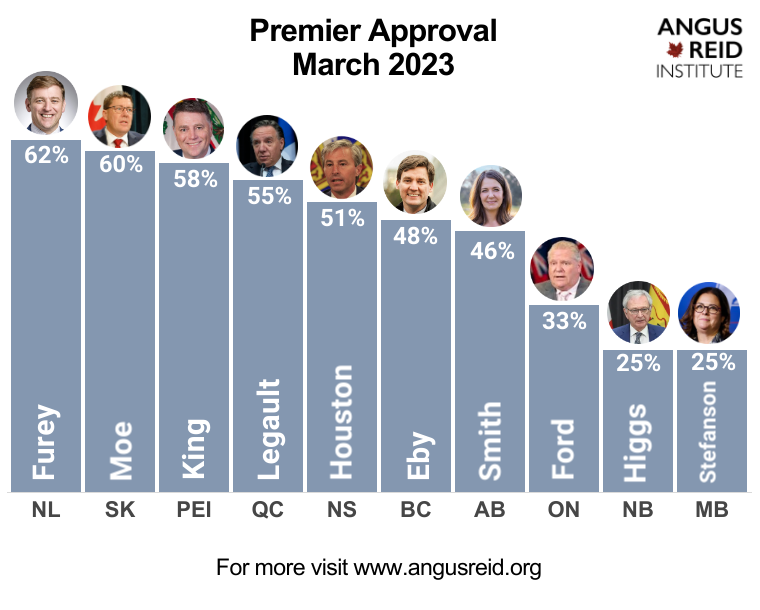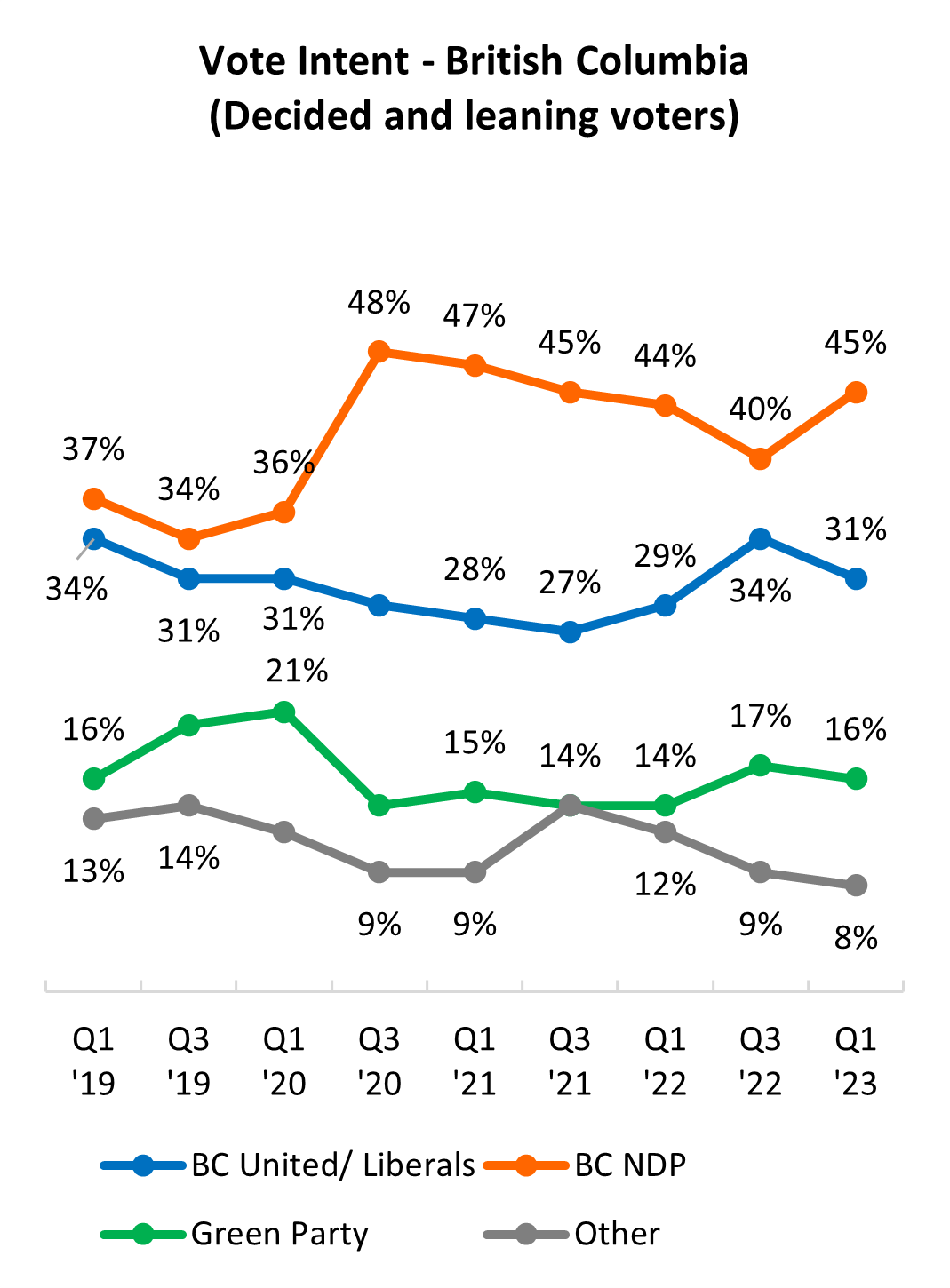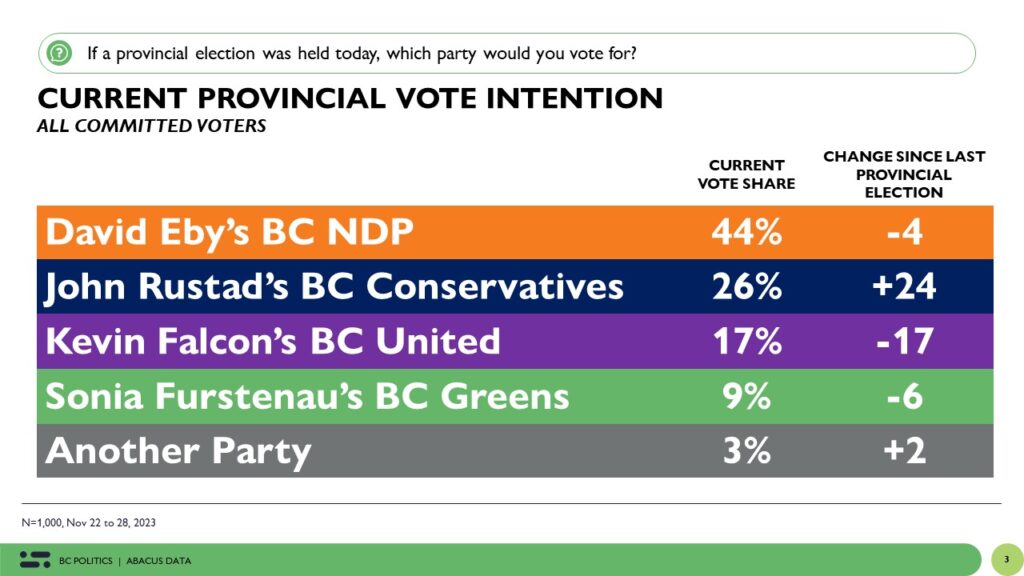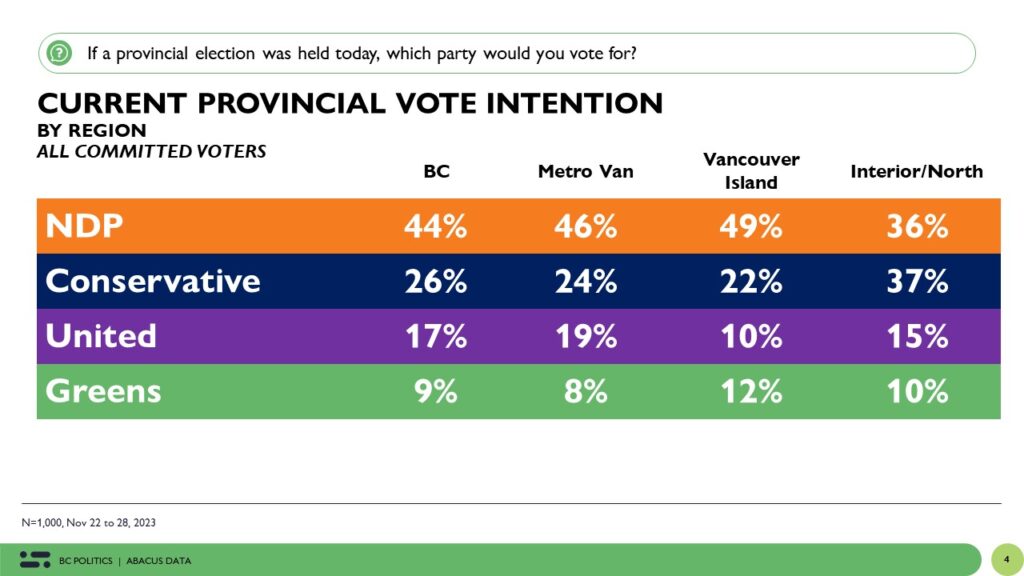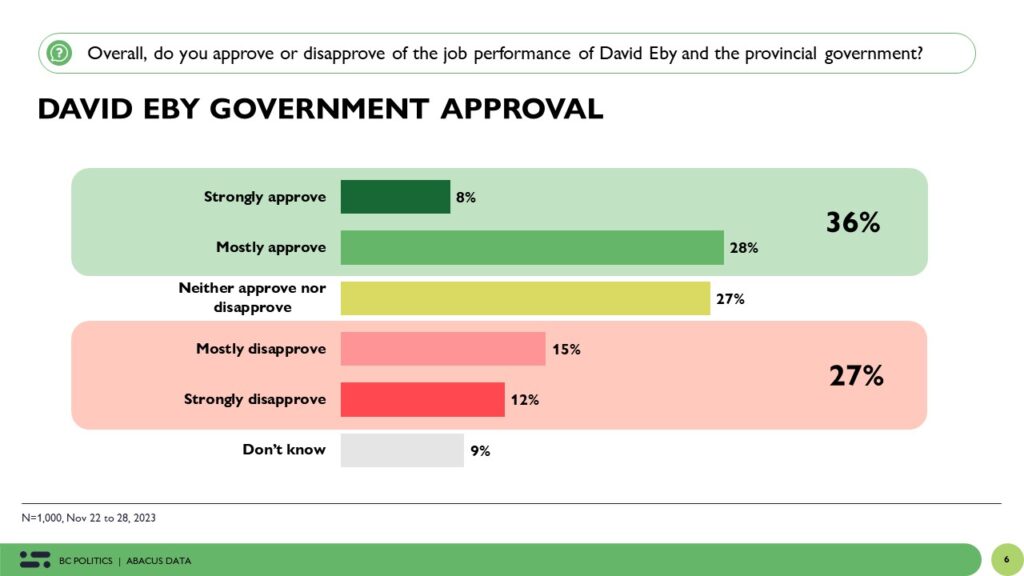John Horgan ranks second in Angus Reid's March 2022's Premier Approval poll, behind only Tim Houston of Nova Scotia, who is still in his honeymoon phase of power.
Houston 73% +16
Horgan 55% +1
Legault 52% -3
Moe 51% +6
Furey 50% -1
Ford 43 +13
Higgins 36 +2
Kenney 30 +4
Stefanson 25 +4
B.C. Premier John Horgan maintains an approval rating consistent with what it’s been for half a year. More than half (55%) of British Columbians approve of Horgan, while two-in-five (41%) disapprove. His province, too, has set the schedule to remove restrictions, albeit at a slower pace than Nova Scotia – B.C.’s vaccine passport will be in effect until at least April 8. Three-in-five British Columbians said he charted a good path through the pandemic over the last two years.Still, Horgan doesn’t always appear to strike the right tone. He was reminded last month of his promise to deal with high gas prices four years ago during the NDP’s first term in government. An inquiry found an unexplained difference in prices between southern B.C. and the U.S. Pacific Northwest, but the government has done little besides trying to increase transparency as prices climb. Earlier this month, Horgan defended taxes on gasoline, which he said build roads, fund public transportation and modernize infrastructure. He also pointed out how fragile that infrastructure is, referencing last year’s atmospheric river which caused catastrophic flooding across the province.

















